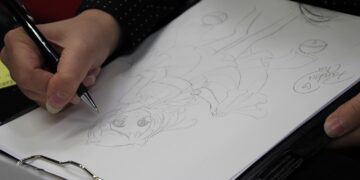Office Chair Maintenance Tips
Office Chair Maintenance Tips is an important step in keeping your furniture comfortable and healthy. It can also help your chair last longer.
Clean the hard plastic and metal components of your chair with a damp cloth or all-purpose cleaner. Large debris, like pebbles or gunk, can be removed from the chair wheels with a butter knife.
Upholstery
The upholstery of an office chair is a magnet for germs and soil. In fact, it’s been estimated that offices have 21,000 germs per square inch, so the right cleaning technique is crucial for a healthy and productive workplace.
Vacuuming on a weekly basis is recommended, but make sure to use a crevice tool that will remove dirt without damaging the fabric. Spot cleaning is also needed for spills and other stains. Dabbing (don’t rubbing) with a cloth dampened with a 70% rubbing alcohol solution works well on most stains, but test it first in an inconspicuous area.
Leather chairs are cleaned using a mild soap solution, but again, test it first in an inconspicuous spot to ensure that it won’t erode the color or texture. Regularly applying a leather protectant or conditioner keeps it soft and repels dirt.
Fabric
Office chairs with fabric upholstery require regular cleaning to maintain a clean appearance and prevent stains. Start with a vacuum cleaner attachment and a brush to remove loose dirt, dust, and hairs from the upholstery. A lint roller can also help with this. Next, wipe the fabric with a cloth dampened with soapy water or a cleaning product for fabrics, following the directions on the bottle.
If a stain persists, dab (don’t rub) the spot with alcohol or another approved stain-remover. Be sure to test the cleaner on a small, hidden area before applying it to the seat.
Leather upholstery requires a different care routine, with special products such as leather lotions or waxes used to clean and protect the material. A leather dye can also be used to color-match discolored areas if the fabric is beyond repair.
Wood
Many office chairs have wood as the primary material and should be maintained well to prevent damage. If clients stop by your office and see the chairs are in disrepair, it may give them a negative impression of your company.
If the wood of an office chair becomes damaged, it can be repaired fairly easily. You can purchase epoxy that will bond with the wood and restore it to its original state. Simply apply the epoxy to the area and let it dry.
Some office chairs have caster wheels on them that can scuff hardwood floors. Fortunately, these wheels can be replaced with softer ones that won’t damage floors. To keep your wheels from becoming jammed, lubricate them with a light machine oil like sewing machine oil.
Gas Cylinder
The gas cylinder is the piston in your office chair that raises or lowers your seat base, enabling you to adjust the height of the chair. This component is often prone to wear and tear, but it is easy to repair with simple tools.
Before starting any repairs, it is important to prepare the workspace. Lay down a mat or sheet to protect the floor or table from any scratches and stains, as well as to make cleanup easier afterward.
You should also put on some rubber gloves to avoid stains or scratches while working with chair parts. A rubber mallet is useful for tapping on chair components, and a lubricant can make the removal process easier. Other necessary tools include wrenches and screwdrivers.
Wheels
The wheels of office chairs encounter a lot of gunk, dust, and hair that accumulates due to everyday use. This obstructs their mobility and affects how they roll across the floor. Cleaning them regularly helps eliminate these elements and prevents them from clogging.
The caster wheel has a stem that connects it to the chair leg and a mounting plate that keeps it secure. The stem is a cylindrical piece that requires a firm grip and strength to pull out the wheel.
It is important to remove the wheels carefully so you do not damage them. Once they are clean, you can apply a small amount of lubricant on each one and move the chair back and forth to distribute it evenly. This process can be repeated every 6 to 8 months.








































